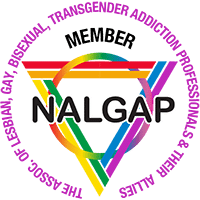Outpatient Program (OP), Denver
Outpatient Treatment Program in Denver, CO
Healing doesn’t require stepping away from everything that defines you. Mile High Recovery’s Outpatient Program recognizes that many people find strength in maintaining their daily structure while receiving professional addiction treatment and mental health support.
Our team works alongside you to develop coping strategies, process underlying challenges, and build the skills necessary for sustained wellness. Every session is an opportunity to strengthen your foundation while staying actively engaged in your community and commitments.
What Is an Outpatient Program?

Outpatient rehab transforms how addiction recovery fits into your world. Instead of pausing your life for healing, this approach weaves professional support directly into your existing routine through regular counseling sessions and therapeutic activities.
You’ll attend scheduled appointments while sleeping in your own bed, maintaining your job, and staying close to family. Each session builds on the last, creating momentum that carries into your daily experiences and relationships.
This model works because true change happens best when it’s practiced in real situations. Every challenge you face becomes an opportunity to apply new skills with professional guidance backing you up.
The Benefits of Outpatient Drug Rehab
Professional outpatient care offers comprehensive addiction support designed to work harmoniously with your circumstances and commitments.
Key benefits of our outpatient program include:
- Preservation of income and career momentum during recovery
- Access to diverse therapy modalities tailored to your specific needs
- Build a local support network within your existing community
- A cost-effective treatment option that reduces financial barriers to care
- Receive ongoing clinical support without disrupting established routines
- Opportunity to model recovery for family members and loved ones
- Create sustainable lifestyle changes that integrate naturally with your goals
Need residential treatment for addiction?
Take the first step towards recovery today.
Our team is ready to help you reclaim your life. Call now!

Why Choose Mile High Recovery Center's Outpatient Drug Treatment
- Personalized Therapy: Evidence-based treatments like CBT, DBT, and ACT tailored to your unique needs.
- Peer-Led Support: Work with alumni staff who bring personal experience, empathy, and real-world insight.
- Whole-Person Care: Address both addiction and co-occurring mental health conditions.
- Sustainable Wellness: Build long-term sobriety with practical life skills and a strong community foundation.
Located in Denver’s thriving support community, Mile High Recovery Center empowers you to create lasting change – not by stepping away from life, but by building strength, balance, and personal growth through each stage of your healing journey.
- Family Therapy
- Cognitive Behavioral Therapy
- Dialectical Behavior Therapy
- EMDR Therapy
- Adventure Therapy
- Relapse Prevention Therapy
- Group Therapy
- Acceptance And Commitment Therapy (ACT)
- Person-Centered Therapy
- Experiential Therapy
- Motivational Enhancement Therapy
- Psychotherapy
- Anxiety Treatment
- Bipolar Disorder Therapy
- Schizoaffective Disorder Treatment
- Alcohol Addiction
- Cocaine Addiction
- Benzodiazepines Addiction
- Opiate Addiction
- Stimulant Addiction
- Suboxone Addiction
- Vivitrol Addiction
- Ecstasy Addiction
- Xanax Addiction
- Hydrocodone Addiction
- Fentanyl Addiction
- Opioid Addiction
- LSD Addiction
- Marijuana Addiction
- Methamphetamine Addiction
- Ritalin Addiction
- OxyContin Addiction
Colorado Rehab | Real Recovery Stories


- Family Therapy
- Cognitive Behavioral Therapy
- Dialectical Behavior Therapy
- EMDR Therapy
- Adventure Therapy
- Relapse Prevention Therapy
- Group Therapy
- Acceptance And Commitment Therapy (ACT)
- Person-Centered Therapy
- Experiential Therapy
- Motivational Enhancement Therapy
- Psychotherapy
- Anxiety Treatment
- Bipolar Disorder Therapy
- Schizoaffective Disorder Treatment
- Individual Therapy
- Alcohol Addiction
- Cocaine Addiction
- Benzodiazepines Addiction
- Opiate Addiction
- Stimulant Addiction
- Suboxone Addiction
- Vivitrol Addiction
- Ecstasy Addiction
- Xanax Addiction
- Hydrocodone Addiction
- Fentanyl Addiction
- Opioid Addiction
- LSD Addiction
- Marijuana Addiction
- Methamphetamine Addiction
- Ritalin Addiction
- OxyContin Addiction
- Prescription Drug Addiction
- Valium Addiction
Reach Out Today to See How Mile High Recovery Center Can Help You Heal
If you or a loved one are ready to regain autonomy over your lives and well-being, recovery starts here. Let us guide you toward sustainable wellness and sobriety through our personalized treatment plans tailored to your unique needs and experiences. We look forward to hearing from you!


